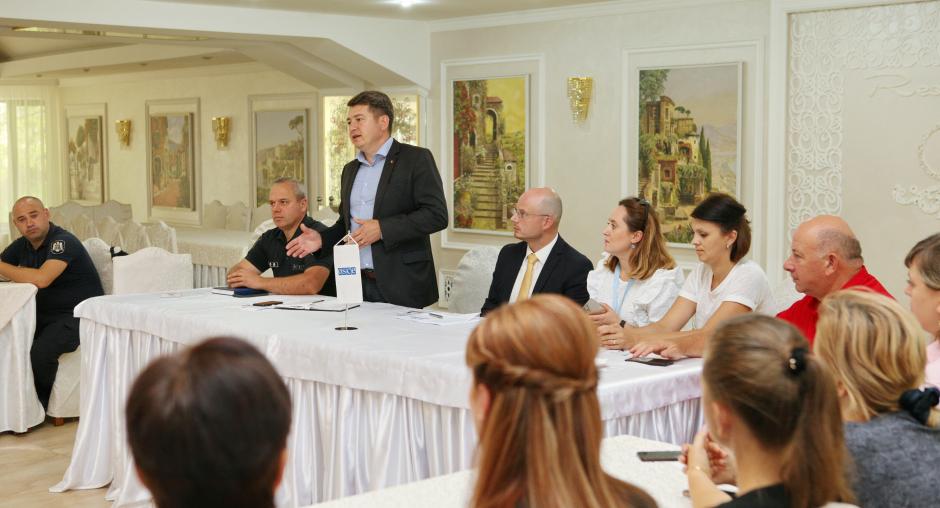OSCE Mission to Moldova supports exchange of experience between service providers for domestic violence survivors

The OSCE Mission to Moldova supported an exposure visit for a group of 16 social service providers to a centre for counselling domestic violence aggressors in the district of Drochia, in the north of Moldova on 23 and 24 July 2019. The service providers from the left bank of the Dniester/Nistru River and the Autonomous Territorial Unit of Gagauzia had an opportunity to learn from the unique experience of the Drochia Centre, which has pioneered working with both domestic violence perpetrators and survivors.
The visit sought to support service providers in their efforts to effectively address cases when the lives and security of women are at risk and to reduce cases of domestic violence in Moldova. According to the recent the OSCE-led Survey on the Well-being and Safety of Women, two in five women in Moldova (40 per cent) say that they have experienced physical and/or sexual violence at the hands of a partner or non-partner since the age of 15. In addition, many women have heard of services to help affected women; however, very few have actually accessed those services.
The centre for counselling aggressors in Drochia was established in 2014 in line with the provisions of the Moldovan law on prevention and elimination of domestic violence. During the visit, the Centre’s workers shared good practices of setting up multidisciplinary teams of police officers, medics, educators and social service providers to address domestic violence cases. Co-operation between local police officers and the service provider has resulted in a growing number of perpetrators referred for rehabilitation to the centre.
“When a survivor of domestic violence returns home, she gets trapped in the same cycle of violence and the conflict may eventually escalate. Regular meetings with a couple affected by domestic violence and a simultaneous process of rehabilitating an aggressor are vital to conflict mediation,” explained Simion Sirbu, Director of the Centre in Drochia. “Counselling sessions for the perpetrators are organized two or three times a week and a full rehabilitation programme lasts from six to eight months.”
Ludmila Matveeva, social assistant with the NGO Women’s Initiative in Tiraspol, mentioned that “this event served as a platform for sharing good practices and should be replicated on both banks of the Dniester/Nistru River.”
“It was a valuable exchange of experiences for us. We want to create a space where women can feel safe and receive assistance benchmarked against the best international standards,” noted Natalia Nichitina, a project co-ordinator with the NGO Vesta, in Comrat.
Prevention of domestic violence is on the agenda of the Working Groups on Human Rights and Social Protection facilitated by the OSCE Mission under the Transdniestrian settlement process. Chisinau and Tiraspol have recently demonstrated a strong interest in exchanging views on best practices of setting up shelters for affected women.
The OSCE recognizes that violence against women is not only a threat to the person, but is also a wider security concern impacting communities and societies at large. Since 2016, the OSCE Mission has carried out a series of workshops across Moldova for over 980 law enforcement officers to improve their capacity in dealing with the cases of domestic violence.
